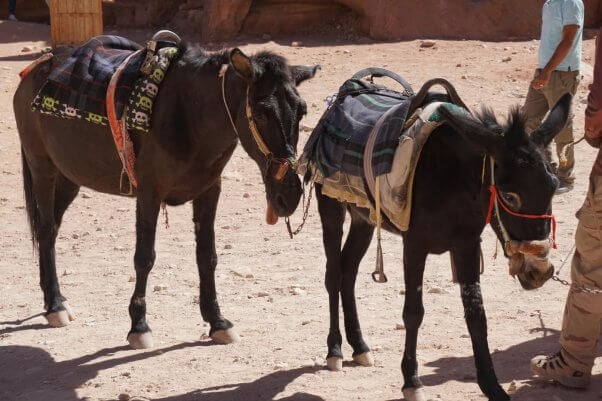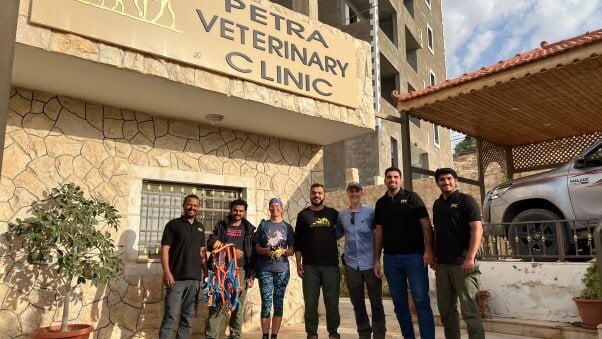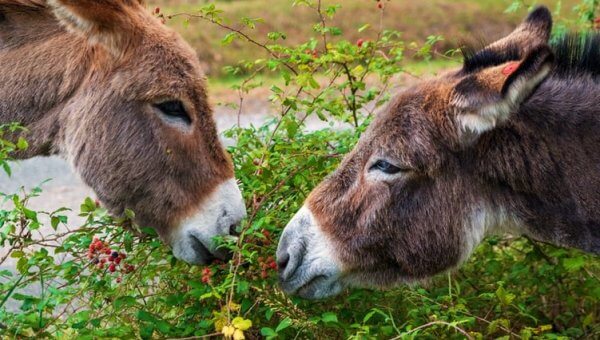A PETA Supporter’s Generous Commitment to Working Donkeys and Horses
When Julie H. traveled to Petra, Jordan, she saw that many long-suffering donkeys there are forced to haul tourists up and down 900 crumbling stone steps—without rest or enough water. When she discovered that a PETA-supported veterinary clinic was there, providing free care, she didn’t hesitate to offer her help.

While packing for her next trip to Petra, she made room in her suitcase for 15 harnesses to donate to the clinic. Clinic staff were over the moon about her donation. Many handlers use horrible chain halters to yank on donkeys and horses, causing intensely painful wounds to their noses and jaws. The clinic will use the donated harnesses as an incentive for handlers to provide adequate rest for animals and keep them healthy.

Julie’s drive to help animals didn’t stop there. She’s already asked the staff what else they need. With the hottest part of the year just on the horizon, they said they could use a hand pump to help treat the many cases of colic that they expect to see.
Beyond Stubborn Stereotypes: Donkeys Are Remarkably Intelligent and Social
In their natural environment—not staggering along crumbling stone paths with tourists on their backs—donkeys are gentle animals who form faithful bonds and express an eagerness to learn. You’ll never braylieve the following fascinating facts about these playful individuals:
- Donkeys have phenomenal memories. They can recall complex routes and recognize animals they haven’t seen for years.
- These enunciating equines communicate using a wide range of body language and vocalizations. Upon greeting, donkeys will often blow gently into one another’s nose, which imparts important information. They carefully move and position their heads, necks, bodies, and tails in order to give clues as to their moods. With loud brays and a keen sense of hearing, donkeys are able to communicate with one another from miles away.
- These equines have a remarkable ability to remain stoic in the face of fear, pain, and illness.
- When assessing potential threats, donkeys plant their feet while they analyze the situation. This has often led humans to incorrectly call them “stubborn,” but the correct term may be “levelheaded.”
The Petra clinic relies on donations from PETA’s Global Compassion Fund. If you would like to join Julie in helping the clinic, you don’t have to make the trek to Petra:


